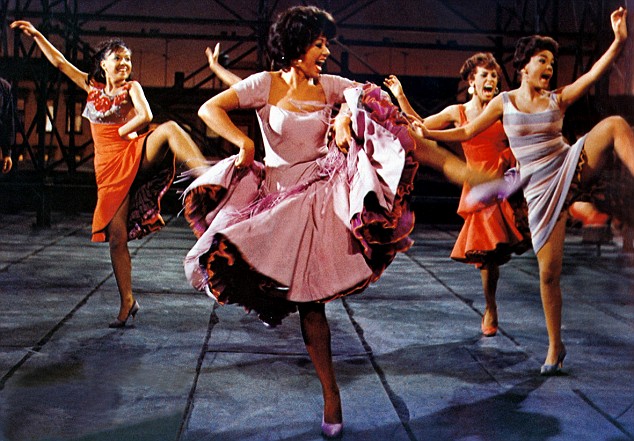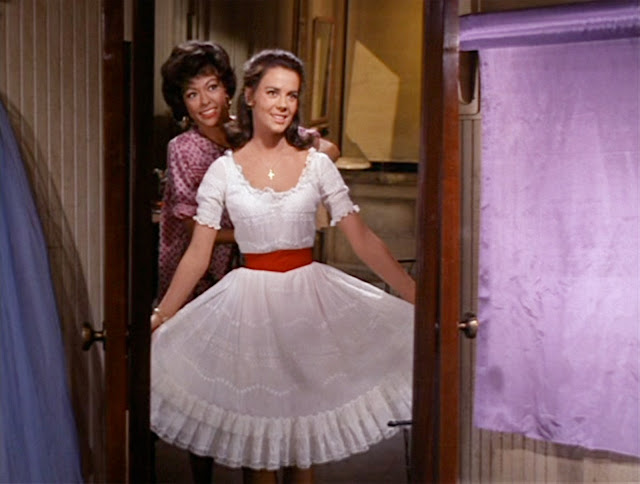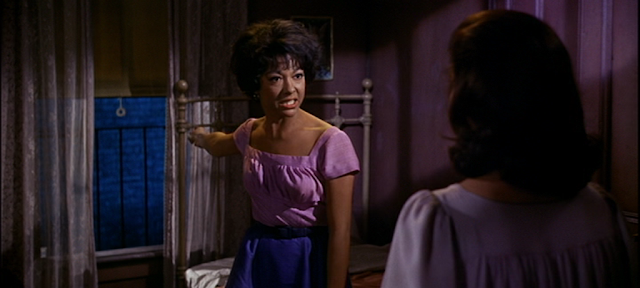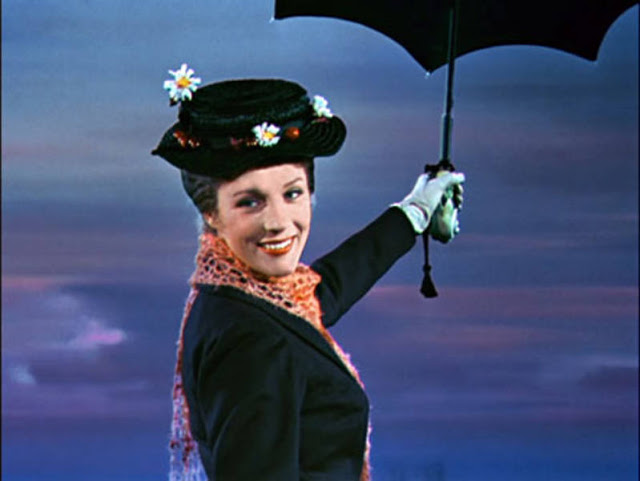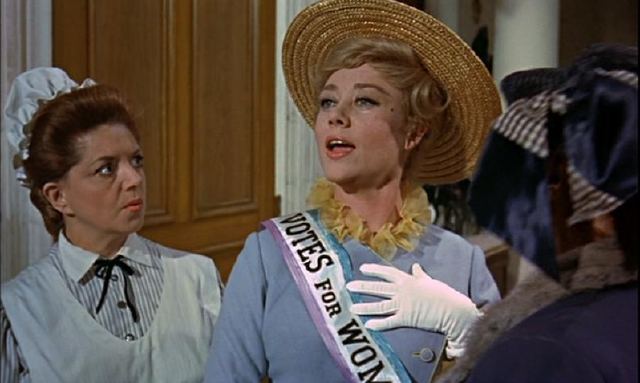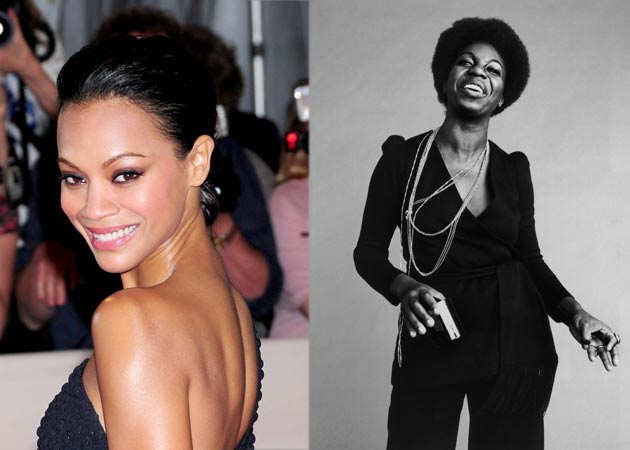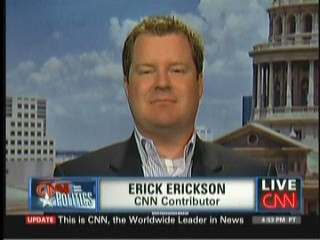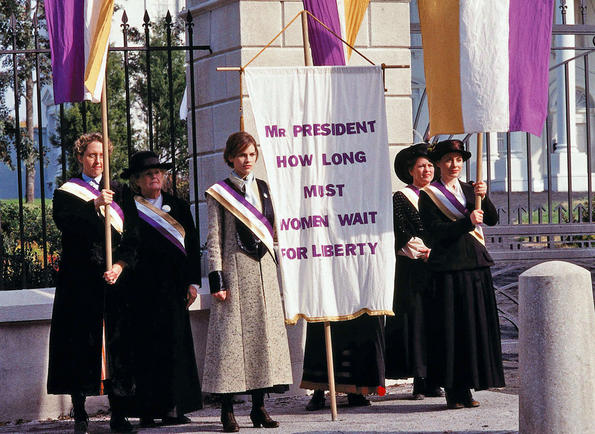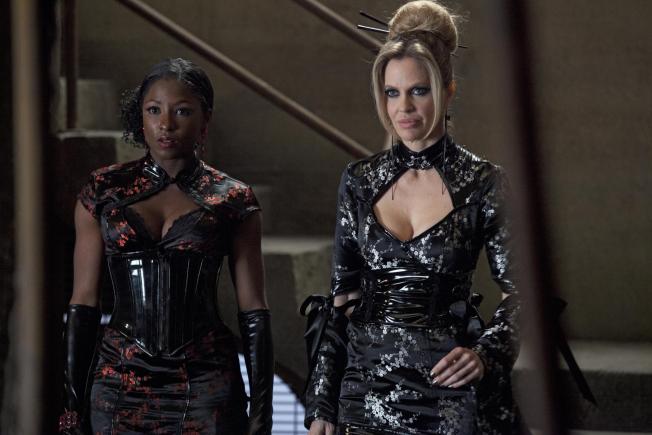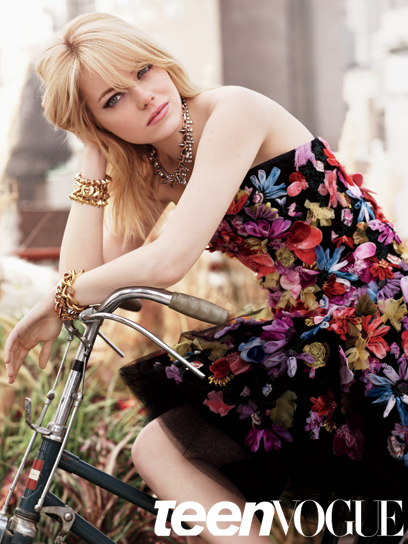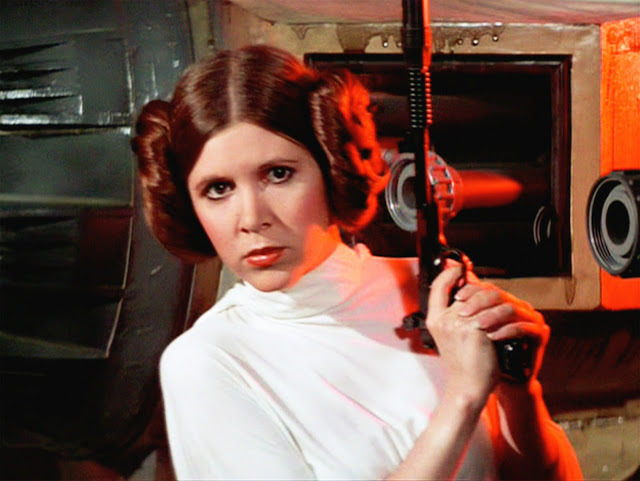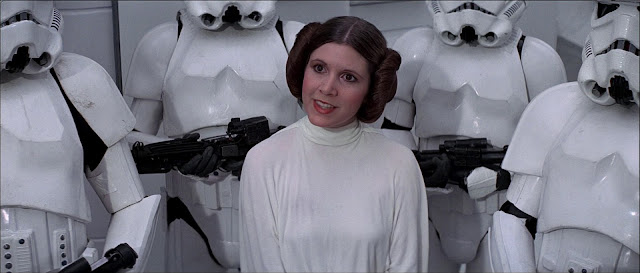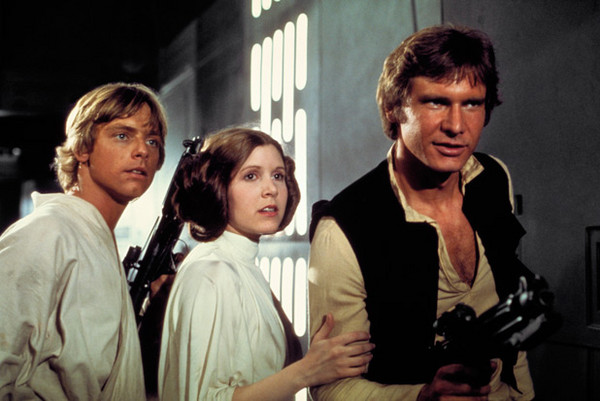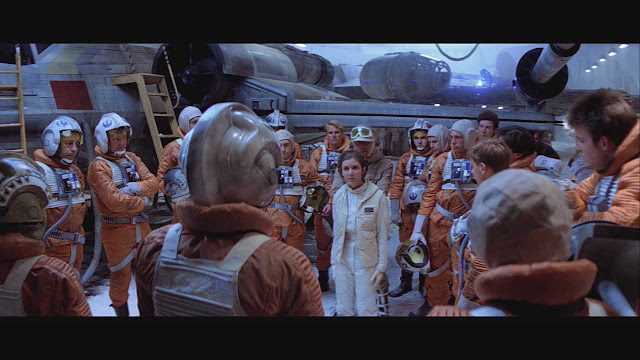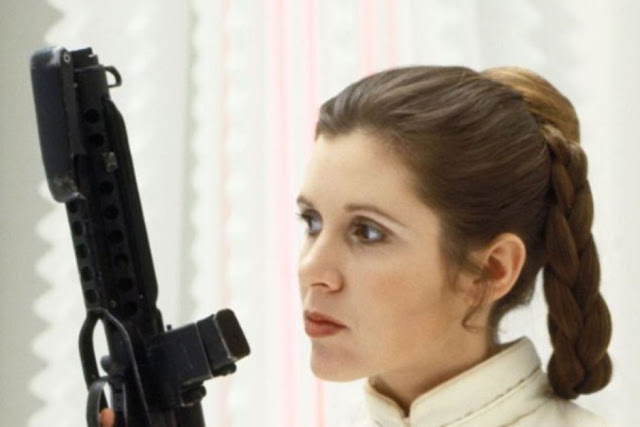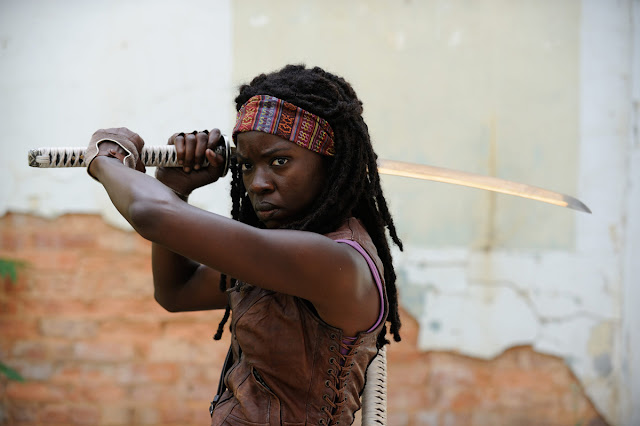 |
| Michonne (Danai Gurira) in The Walking Dead |
Warning: if you haven’t seen Seasons 1 and 2 of The Walking Dead, there are spoilers ahead.
Have you ever dated someone because of their potential rather than what she/he/ze brings to the table? Or is that just me?? Well, that’s how I feel about AMC’s The Walking Dead.
While I like the show, I keep watching the zombie apocalypse, based on the comic books, because I keep hoping and expecting it to become great – especially when it comes to the female characters and the show’s sexist portrayal of gender roles.
The conservative characters continually depict retro gender norms. The men talk about protecting the women. The women cook and clean while the men go off and hunt or protect the camp or farm. Yes, Andrea is the exception to the rule. She shoots and kills zombies and patrols the perimeter. But the women take a backseat to the men. They let the men debate, argue, decide.
I criticized Game of Thrones, a show I adore, for its misogyny. But at least it contains strong, intelligent and powerful female characters. Where the hell are they on The Walking Dead???
Which is why I’m so excited about the introduction of Michonne.
For those who haven’t read the comics (like me), Michonne, who will be played by Danai Gurira (who’s simply amazing in The Visitor and Treme) seems to be a strong, powerful, complex character. She’s clever since she uses two incapacitated walkers in order to seek out the living hide from other walkers. She appears to be a fierce and fearless survivor. But what’s even more exciting is that she’s a woman of color.
Yet I’m skeptical as the show hasn’t done a great job portraying gender so far.
Lori (Sarah Wayne Callies) does whatever Rick (Andrew Lincoln), her husband and leader of the group, says, blindly and unquestioningly standing by him. Carol (Melissa McBride), who’s keeping it together pretty well considering she’s lost her daughter and her husband, still clings to men, first her abusive husband Ed and now Daryl (Norman Reedus), who tell her what to do. The writers squandered the opportunity to explore a domestic violence survivor rather than making her a caricature. When we first meet Maggie (Lauren Cohan), she’s riding in on a horse, bashing a Walker (aka zombie) with a baseball bat. She started off so fierce, spunky and sexually assertive. It’s just unfortunate she’s unraveling, a hysterical mess who seems to cling to her BF Glenn (Steven Yeun) for protection.
The two bright spots are Andrea and Jacqui. Andrea is one of my favorite characters. A tough survivor, she’s one of the best shots and guards the camp. She did try to commit suicide, despondent after her sister died. But she’s become determined to live. She’s smart, questions the status quo, and has become more assertive, unafraid to voice her opinion. Jacqui was outspoken and seemed to possess a quiet inner strength. While I wish she’d fought harder to survive, she chooses to end her life, dying peacefully at the end of Season 1. Even though Andrea and Jacqui are the only ones, I’m glad SOMEBODY questions the ridiculous gender nonsense.
In the very first episode in Season 1, there’s a flashback depicting Rick and Shane joking about gender differences. When Rick confides that he’s having marital problems, he tells Shane that Lori accused him of “not caring about his family in front of” their son Carl. And then Rick (who I actually like a lot) says:
“The difference between men and women? I would never say something that cruel to her.”
Wow, so we’re treated to gender essentialism and a lovely tidbit that women are cruel, heartless shrews all in the first episode. This is definitely an omen of things to come.
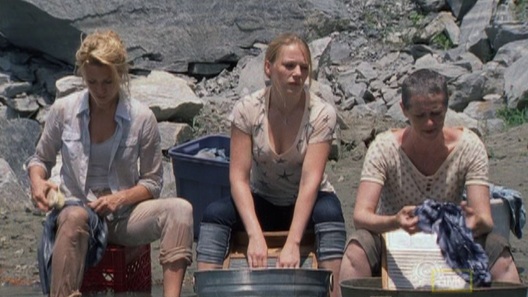 |
| Andrea (Laurie Holden), Amy (Emma Bell), Carol (Melissa McBride) doing laundry on The Walking Dead |
In “Tell It To the Frogs,” Andrea, Amy, Carol, Jacqui wash laundry in a lake. As the women work, they see the men splashing around enjoying themselves. Jacqui, one of the only women with any common sense and a spark of strength, asks:
“I’m really beginning to question the division of labor around here. Can someone explain to me how the women ended up doing all the Hattie McDaniel work?”
YES!! Love this! How about maybe they rotate chores? Or what if (radical idea here) some of the men wanted to cook or clean? Why should the women do all the domestic tasks??
The women proceed to bond over missing their washing machines and vibrators. But then the frivolity is cut short by Carol’s abusive husband Ed who threatens the women and then slaps Carol. While the women try to defend her, Shane steps in and starts beating the shit out of him, getting out all his aggression and frustration about Lori spurning him. So even though Shane warns Ed that he better not ever lay a hand on Carol or Sophia, he’s not acting out of nobility or the belief that men shouldn’t abuse women. Not surprising as this is the same douchebag who later tries to rape Lori and then brushes it off when she confronts him about it.
Talking about women in post-apocalyptic genres, Balancing Jane asserts that while strong women exist, it’s the men who rescue them and allow them their strength:
“[The Walking Dead goes out of its] way to demonstrate that those women had to first be saved by a righteous man. In order for women to become competent and determined, a man had to first stand up and make a space for them. Until a man appeared as savior, the women were doomed to be physically overpowered and sexually exploited.”
Men continually deny women power and autonomy. Dale takes Andrea’s gun away from her (“What Lies Ahead”) like she’s a child, backed up by rapist Shane. So a grown-ass woman shouldn’t have a gun but Carl, an ELEVEN-year-old can carry one! Oh but the little woman can’t be trusted. Ugh. Dale also comments on Andrea and Maggie’s sex lives. Speaking of Carl and guns…Lori voices her opposition for her son shooting yet no one listens to her concerns. When Lori discovers she’s pregnant, Glenn scolds her for not taking her vitamins as if she doesn’t know how to care for herself. Gee thanks, Glenn, it’s not like she’s never been pregnant before.
And then of course there’s the infamous abortion/emergency contraception storyline in “Secrets.” After Lori discovers she’s pregnant, she asks Glenn to obtain medication from the pharmacy for her to terminate her pregnancy (which she admits she’s not sure if it will work). But EC is contraception, doesn’t terminate an existing pregnancy and must be taken within 72 hours of unprotected sex or failed contraception. RU-486, which does terminate an existing pregnancy, has to be procured from a doctor, not a pharmacy.
Jezebel, Slate, ACLU and many others wrote about this episode and the myths it perpetuates. Of course showrunner Glenn Mazzara brushed off the criticism saying the writers took “artistic creative license” and he “hopes people aren’t turning to the fictional world of The Walking Dead for medical advice.” Well of course people shouldn’t be. But the media influences people’s perceptions, including medicine and abortion. There’s so much misinformation swirling around abortion and contraception. And it’s this misinformation that anti-choicers use to their advantage.
If ever there was a time for a show to depict a pregnant character having an abortion…yeah, I think a zombie apocalypse would be it. But it’s strange that this abortion/contraception arc occurs in the same episode where people are debating the zombies in the barn and what constitutes life.
 |
| Lori (Sarah Wayne Callies) and Rick (Andrew Lincoln) on The Walking Dead |
But it’s the reaction of those around Lori that most disturbs me. Rick screams at Lori for even thinking about terminating the pregnancy. After Maggie and Glenn return from the pharmacy (granted, they’ve just been attacked by zombies), Maggie chucks the pills at Lori saying, “Here’s your abortion pills!” So not only does Lori not turn to another woman for help (turning to Glenn instead), but Maggie yells at her for her reproductive choice. As Bitch Magazine blogger Katherine Don writes:
“When reproductive choices are navigated by a stereotyped character and manhandled by scriptwriters who don’t recognize a woman’s ability to weight options and make decisions, the woman is robbed of her individuality, humanity and dignity.”
Beyond their “individuality, humanity and dignity,” the women are also robbed of their voice. In “Judge, Jury, Executioner,” the group congregate in the farmhouse to discuss the fate of captured Randall. While Dale vehemently opposes the decision to execute him, he’s the only one who speaks up. Eventually, Andrea, who was a civil rights lawyer pre-walkers, voices her opinion that Dale’s right. Lori, who opposes the death penalty, says nothing, almost always blindly agreeing with Rick. But the worst comes when Carol says she wants no part of the decision and wants them to decide it for her. Excuse me?? You want to forget all about making the hard decisions and just sit back, letting others decide for you??
I’m so fucking tired of the writers silencing the women.
The show’s treatment of race and heteronormativity isn’t a whole lot better. Why does the one black man (what happened to Morgan and his son from Season 1??) have to be silent for most episodes and have a ridiculous name like T-Dog? Where are the LGBTQ characters? What does it say about a show where the most interesting and complex character is a racist?? Yep, sad to say but Daryl’s my favorite. Why do we have to keep hearing racist Asian jokes? Why did Jacqui, the one black woman on the show, have to kill herself??
We see female empowerment continually stripped away. Lori seems to be the worst perpetrator of gender stereotypes and reinforcing hyper-masculinity. Glenn tells Maggie that he was distracted shooting at the bar because all he could think about was her. When Maggie confesses this in “18 Miles Out,” Lori in her infinite wisdom tells her that she should let “the men do their man-work” and that it’s women’s jobs to support the men. Oh yeah, she also says, “Tell him to man up.” Gee thanks, Lori. Swell advice. So men aren’t allowed to be emotional or sentimental. Only women.
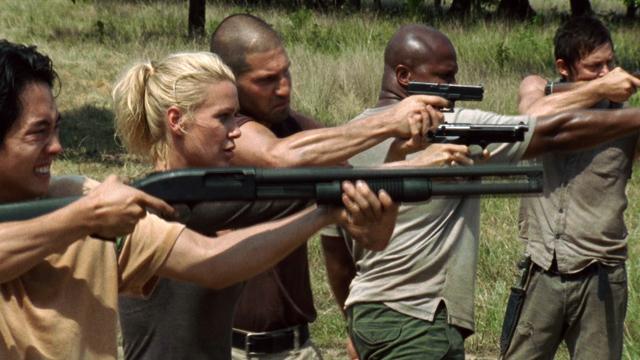 |
| (L-R): Glenn, Andrea, Shane, T-Dog, Daryl on The Walking Dead |
Later, Lori, on another anti-feminist tirade (!!!), scolds Andrea for burdening the other women by not cooking and cleaning. Lori says Andrea should leave the other work for the men, like a good little woman, don’t ya know. What. The. Fuck. When Andrea says that she contributes to the group by offering protection and keeping watch (which she does), Lori blurts out,
“You sit up on that RV working on your tan with a shotgun in your lap.”
I’m sorry, did the zombipocalypse also signal a rip in the fabric of time where The Walking Dead characters now live in fucking 1955?! So Lori, women shouldn’t be “playing” with guns or hunting for food or protecting the camp. Nope. Women are only good for domestic duties like cooking, cleaning and child-rearing. Leave the tough stuff to the men. Silly me for forgetting. Thank god Andrea told Lori and her bullshit off. Maybe Lori’s just jealous of Andrea’s skills since Lori can’t drive a car without flipping it into a ditch.
While blaming it on Lori’s “irrational behavior” due to her pregnancy and “going through a lot of stuff” (um, aren’t they all?), writer and The Walking Dead creator Robert Kirkman ultimately defends this exchange and the show’s depiction of traditional gender roles:
“Lori is really just aggravated over a lot of things and she’s lashing out. She was serious and she wants Andrea to pull her weight; certain people are stuck with certain tasks and to a certain extent people are retreating back into traditional gender roles because of how this survival-crazy world seems to work.”
So I’m really supposed to believe that when the zombie shit hits the fan, we’re all going to take a time warp? And why the fuck is it a woman, the wife of the leader of the group, who keeps spouting sexist bullshit?!
The horror genre often makes commentaries on humanity vs. brutality. Yet Kirkman clearly doesn’t care about making a social commentary on gender. And to a point that’s fine – not everything must possess some deep message. But there’s no reason the opposite couldn’t be true – an apocalypse spurring egalitarian rather than “traditional” gender roles.
All of the survivors have endured unspeakable horrors, witnessing the slaughter of their loved ones. People react differently to tragedy, some will come unhinged while others grow stronger. And wielding a gun isn’t necessarily synonymous with strength. But why must we constantly see a rearticulation of sexist gender stereotypes? Do people actually think this sexism is justified because they erroneously think we live in a post-feminist society?? When it comes to genres like horror, fantasy and scif-fi, writers can imagine any world they wish. Why imagine a sexist one? Why is everyone on the show struggling to maintain white male patriarchy??
We haven’t witnessed a fierce woman in any leadership role yet. With the arrival Michonne, I’m finally truly excited about The Walking Dead. I’m hopeful that the writers can still turn things around. With Michonne and Lauren Cohan who plays Maggie promoted to series regular, some speculate “Season 3 is shaping up to be a big one for the ladies.” But I’m still skeptical. Michonne has a lot to do to erase the stench of sexist bullshit contaminating the show.








